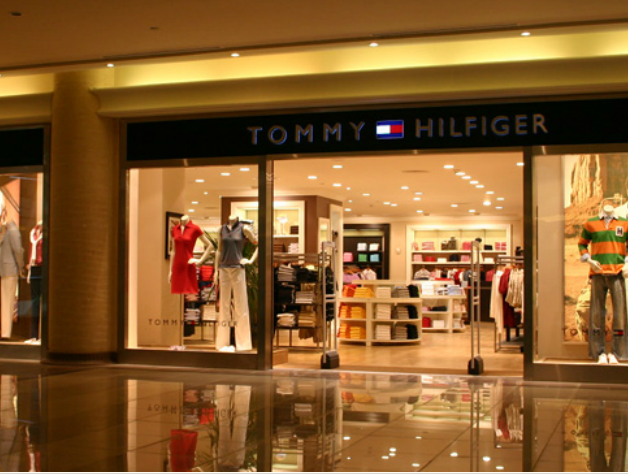Last Ramadan, in defiance of all the dietary restrictions placed on an elderly diabetic, and after a heavy iftar, my father sneaked into the kitchen to get himself a piece of konafa, the popular pastry drenched in sweet dressing and stuffed with hazelnuts and almonds. He turned to me as he savored the desert and said, “You know what? Under Nasser we used to stuff konafa with peanuts. We didn’t have the variety of nuts there is to day, they were considered a luxury. But we were happy.”
Happy! How could you be happy without variety? That was the first question that crossed my mind. “We had less choice and there were fewer things to buy”. Like many middle class Egyptians, my 71-year-old father started his career as a state technocrat in the early 1960s, a shining example of the Gamal Abdel Nasser era. His observation made me wonder about what remains from the lifestyle of a class that was once the backbone of Nasserist society.
The middle class: A changing meaning
On coming to power in 1954, Nasser determined to create a large middle class to serve as a social base for the new regime. This was to be achieved by increasing bureaucracy and subsidizing higher education. At the apex of the socialist era, the university system was made accessible to students from non-elite backgrounds by the abolition of tuition fees. At the same time new state-employment policies guaranteed jobs to all graduates. The number of civil servants grew from 250,000 to 1.2 million in just twenty years.
Under the economic liberalization of President Sadat, the configuration of this particular class evolved. Some slipped down the social ladder while others went up grooming themselves as a class of professionals who were fully integrated into the new order.
And the same order has persisted since the 1970s. Their names are no longer on the state’s payroll. Private investors, foreign companies and banks are their new employers – an opportunity that has allowed these professionals to earn unprecedentedly high incomes. This, combined with the abundance of available goods has allowed them to develop a completely novel lifestyle that has little in common with that of the early post-revolution era.
Our evenings:
It is the early 1960s. The white-collar father gets home around 3:00 pm after spending six hours in a government office. The family all eat lunch which it has taken their mother all day to prepare. The parents take a nap while the children study. Later they listen to the radio. The same programs resonate through houses in cities all over Egypt. At 8:30 pm, the news comes on, peppered with Arab nationalist and socialist slogans, the bulletin offers a one-sided coverage of Nasser’s news. In 2010, the evening schedule is much busier.
It is 7:00 pm on a weekday. A couple come home after a tough day in the corporate world. It is time for the parents to set their laptops and blackberries aside and be with their families. “How was your day, sweethearts? What did you do at school?” mum asks her kids, in English. Strangely enough, conversations are usually held in English to help children acquire the language of the global job market. Meanwhile, dad orders dinner over the phone from an American fast food chain and while they eat, it’s time for TV. The minute the plasma screen is turned on, hundreds of satellite channels bombard the family. They have thousands of shows to choose from: Arabic drama, music videos, English-speaking animation or religious shows. At 10.00 pm, it’s hard to avoid the abundance of news talk shows. With such variety the viewer must be exposed to diverse political views, and a less ideological discourse. As soon as they start nodding off, they switch off the television and head to bed anticipating another exhausting workday tomorrow.
Where to shop?
In The Changing Consumer Cultures of Modern Egypt (Brill, 2006), sociologist Mona Abaza records the consumption habits of Egyptians in the 1960s. The typical middle class woman would ask her tailor to copy fashionable European models she had spotted in the foreign magazines she read or she could shop at the nationalized department stores. The whole family would take public transport or drive a locally assembled Fiat to Omar Effendi, Benzayoun, Sidnawi or Rivoli to do their shopping, choosing from a small variety of locally-manufactured brands.
Nowadays, the tailor is redundant. A woman does not need to copy foreign patterns anymore. Instead, she can go on a luxurious shopping trip to one of the gigantic shopping malls like City Stars and treat herself to the authentic version. All the European and American brands are on display: Mango, Zara, Esprit and Victoria’s Secret. She doesn’t even need to bring cash. She can simply swipe her debit card. At the week-ends, the whole family piles into their enormous imported car and heads to a hypermarket. The baqaleenor convenience stores are irrelevant. With their shopping trolley, the family trawls the spacious isles of Carrefour or Spinneys piling up all manner of food stuffs, local and imported, on a grueling trip which takes at least a couple of hours.
Our holidays
It is June in the mid 1960s. School is over. The family packs and prepares to spend the summer holidays in a rented apartment in the Mediterranean city of Alexandria or a reed house in the Delta resort of Ras el-Bar. Once there, unpacking can be done at leisure–after all, there are at least three months before the family has to head back to Cairo.
It is June 2010. As his beeper goes off at 4:00 pm on Thursday, dad hurriedly packs up and leaves the office. Not one hour of the weekend to waste. The rest of the family is waiting anxiously on the balcony. In less than four hours, they arrive at one of the Mediterranean resorts on the north coast. The following morning is spent at the beach. The ladies are saved the embarrassment of sexual harassment by driving to some exclusive resort with private beaches for women where they can swim in bikinis, get a suntan and take part in dance contests.
Unfortunately even with all the miraculous variety available in 2010, holidays go by very fast and soon it is Saturday evening; time to pack up and go back to the daily work routine in crowded Cairo.




